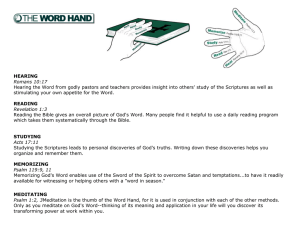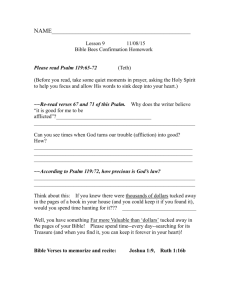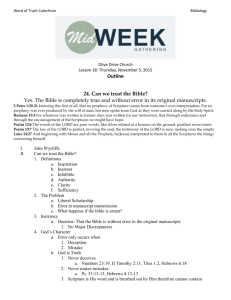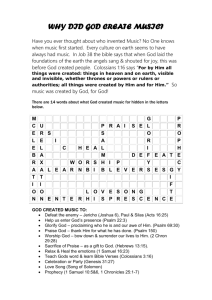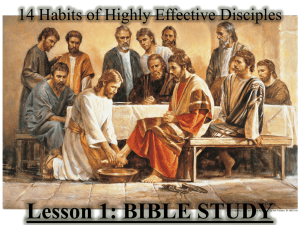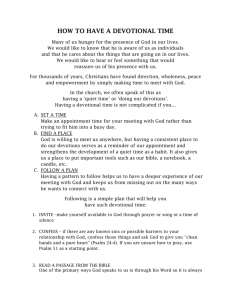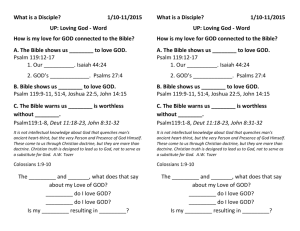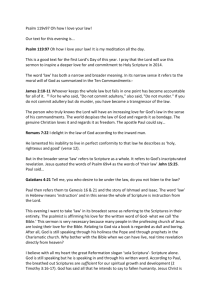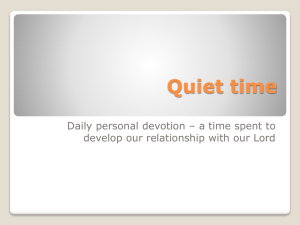lesson 1 - Word of Life Tabernacle
advertisement
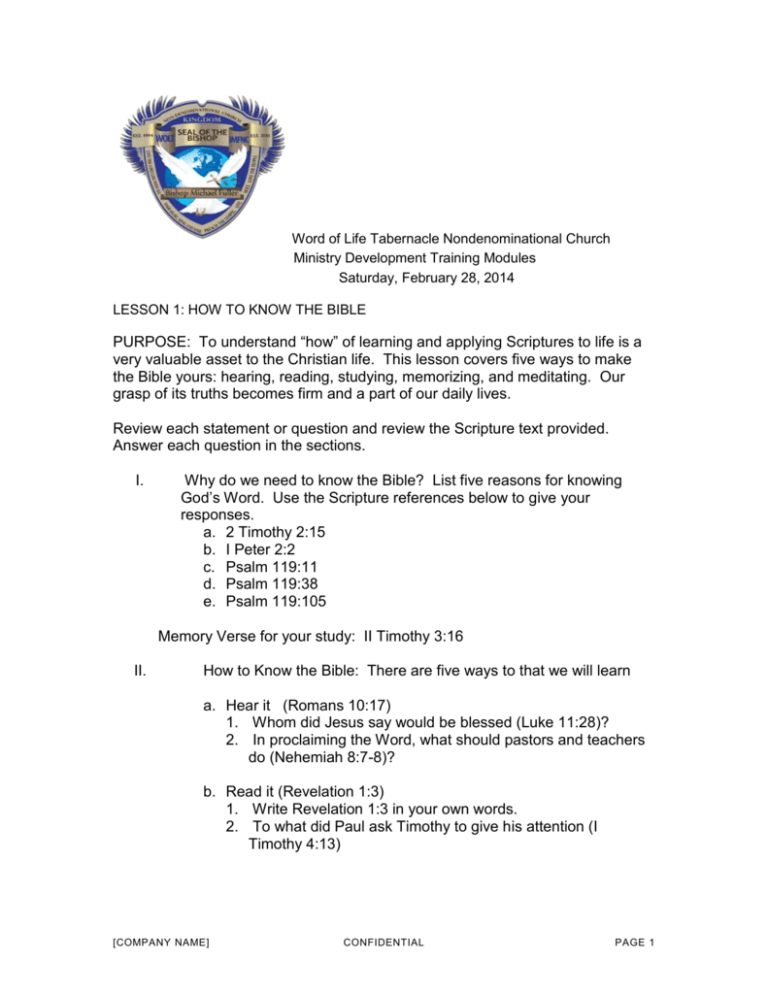
Word of Life Tabernacle Nondenominational Church Ministry Development Training Modules Saturday, February 28, 2014 LESSON 1: HOW TO KNOW THE BIBLE PURPOSE: To understand “how” of learning and applying Scriptures to life is a very valuable asset to the Christian life. This lesson covers five ways to make the Bible yours: hearing, reading, studying, memorizing, and meditating. Our grasp of its truths becomes firm and a part of our daily lives. Review each statement or question and review the Scripture text provided. Answer each question in the sections. I. Why do we need to know the Bible? List five reasons for knowing God’s Word. Use the Scripture references below to give your responses. a. 2 Timothy 2:15 b. I Peter 2:2 c. Psalm 119:11 d. Psalm 119:38 e. Psalm 119:105 Memory Verse for your study: II Timothy 3:16 II. How to Know the Bible: There are five ways to that we will learn a. Hear it (Romans 10:17) 1. Whom did Jesus say would be blessed (Luke 11:28)? 2. In proclaiming the Word, what should pastors and teachers do (Nehemiah 8:7-8)? b. Read it (Revelation 1:3) 1. Write Revelation 1:3 in your own words. 2. To what did Paul ask Timothy to give his attention (I Timothy 4:13) [COMPANY NAME] CONFIDENTIAL PAGE 1 Person Challenge for reading the word of God. Start with the Gospel of John. At the rate of two chapters each day, you will complete the New Testament in 19 weeks! Let’s do it!!! c. Study it When the apostle Paul left Thessalonica, he came to Berea and shared the gospel with unbelieving Jews. What he found was that they “were more noble-minded than those in Thessalonica, for they received the word with great eagerness, examining the Scriptures daily to see whether these things were so” (Acts 17:11). There is a certain attitude that you must have toward Bible study: 1. According to Acts 17:11, what two traits did the Bereans demonstrate as they received the Word of God? 2. How should we search for wisdom or understanding (Proverbs 2:4)? SPECIAL KEY POINTS TO REMEMBER: Bible study is more than just reading the Bible; it involves careful observation, interpretation, and application. Reading gives you the overall picture, but study helps you think, learn, and apply what you read to your life. d. Memorize It “How can a young man keep his way pure? By keeping it according to your word…Your word I have hid (treasured in my heart), that I may not sin against you” (Psalm 119:9, 11). 1. How did God command Israel to remember His Word? a. Deuteronomy 11:18a b. Deuteronomy 11:19 2. Read Matthew 4:4; Matthew 4:7, 10 a. How many confrontations did Jesus have with Satan? b. What did Jesus do to overcome His temptations? c. How might you apply this example to your own life? 3. Write Psalm 40:8 in your own words. [COMPANY NAME] CONFIDENTIAL PAGE 2 Key Point: It is easier to memorize with a purpose. Understanding the meaning or application of the passage will make memorizing easier. d. Meditate on It (Read Psalm 1:1-3) Meditation is prayerful reflection on Scripture with a view toward understanding and application. Give prayerful thought to God’s Word with the goal of conforming your life to His will. 1. How can we meditate on Scripture? This can be done in several ways: a. b. c. d. Hear the Word preached. Read the Bible. Pray about what you are studying. Reflect on the verses you have memorized. 2. How does meditation assist you (Joshua 1:8)? 3. Do you think God’s Word can affect your speech and actions? How? (see Luke 6:45) 4. Besides being diligent in learning God’s Word, what else should we do in order to understand it (Psalm 119:73, 125)? [COMPANY NAME] CONFIDENTIAL PAGE 3
